Search Results
Showing results 601 to 620 of 2481

A Matter of Splatter
Source Institutions
In this math-based activity, learners will experiment to find how height and angle affect spatter and then use this knowledge to solve a crime.
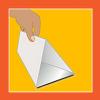
Kaleidoscope
Source Institutions
In this activity, learners investigate the reflective properties of light and mirrors as they make a kaleidoscope.

We all Scream for Ice Cream
Source Institutions
In this activity, learners observe how salinity affects the freezing point of water by making and enjoying ice cream.

Liquid Lens
Source Institutions
In this activity, learners discover that they can create a lens from a water drop. Learners test their lens by looking at words or pictures.

Rubber Bones
Source Institutions
Over 1 or 2 days, learners use vinegar to remove the calcium from a chicken bone. They then explore how the bones have changed. An accompanying video with Mr.

On the Microbe Trail: An Introduction to Bacteria and Aseptic Technique
Source Institutions
In this series of exercises, learners predict the conditions necessary for bacterial growth, test their predictions and at the same time practice the aseptic techniques and safety procedures needed wh
What Does Life Need to Live?
Source Institutions
In this astrobiology activity (on page 11 of the PDF), learners consider what organisms need in order to live (water, nutrients, and energy).
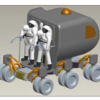
Cooling Off
Source Institutions
In this activity, learners are introduced to challenges of maintaining temperatures while living in space.
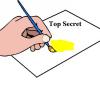
Mystery Writing: Write and develop a secret message
Source Institutions
Learners write an invisible message using lemon juice on a piece of paper. They then develop the message by soaking the paper in a dilute iodine solution.
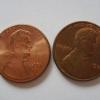
Polishing Pennies
Source Institutions
In this experiment, learners try different liquids to see which ones clean pennies best. Liquids to try include water, lemon juice, cola, vinegar, and dishwashing detergent.
No bones about it!
Source Institutions
This is an activity (located on page 3 of the PDF) about the mixture of materials in bone and how they affect its strength.
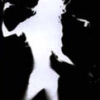
Self-Portrait Silhouettes: Activity 1
Source Institutions
In this activity, learners make a photographic image--without a camera!
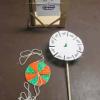
Spinning Illusions
Source Institutions
In this activity, learners construct three optical illusion toys to examine how our brains play tricks on what we see.
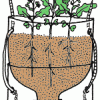
TerrAqua Investigation Column: What is the Land-Water Connection?
Source Institutions
In this investigation, learners plant seeds in a 2-liter bottle filled with soil that is connected to a water source below. Over the next few weeks, learners observe how the plants grow.
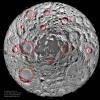
Shapes and Angles
Source Institutions
In this activity (page 7 of PDF), learners will identify the general two-dimensional geometric shape of the uppermost cross section of an impact crater.
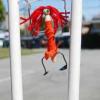
Gymnast
Source Institutions
In this physics activity, learners build a toy with a figure that spins around like a gymnast on the high bar.
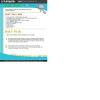
Moo Glue
Source Institutions
Using a milk-based recipe, learners create "moo glue" which is basically white school-type glue. The "secret ingredient" in milk that helps make glue is a chemical called casein.
How Do Antacids Work?
Source Institutions
You just ate a big meal and feel heartburn coming on. You take an antacid and feel better. Why? Heartburn is caused by stomach juice (an acid) burning the esophagus.
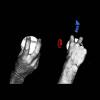
Thrown For A Curve: Pitch Like A Big Leaguer
Source Institutions
You may have tried to throw a curveball or a slider, or even a screwball, with an ordinary baseball and found it difficult to do.
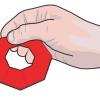
Origami Flying Disk
Source Institutions
In this three-part activity, learners use paper to explore Bernoulli's Principle — fast-moving air has lower pressure than non-moving air.
